Sports
Cal Track Pair Ends Season In NCAA Semifinals


Al Sermeno/KLC fotos
MacQuiddy (left) and Goode (right) each had an outstanding year for the Bears, setting program records both indoors and outdoors.
MacQuiddy, Goode Finish Year As All-America Honorable Mentions
EUGENE, Ore. – Two men from the California track & field team completed their 2025 collegiate seasons on Wednesday evening, as school record-holders Garrett MacQuiddy (1500m) and Johnny Goode (400m) represented the Blue & Gold at the NCAA Outdoor Championships, held this year at Oregon’s Hayward Field.
Competing in his second NCAA Championships semifinal, MacQuiddy closed out his collegiate career with a time of 3:53.49 after being cut off on the back stretch, which kept him in the back half of the pack despite posting a time of 51.87 on the bell lap.
Goode, who broke the 40-year-old program record at the ACC Championships, raced in the third heat in the NCAA Semifinals and posted a time of 46.39 to likewise earn All-America Honorable Mention status.
The Golden Bears have just one more man (discus world record-holder Mykolas Alekna) appearing at the NCAA Championships his week, with the men’s discus competition slated for Friday at 2:15 p.m. PT.
2025 NCAA Outdoor Championships – Day One Results
Men’s 400m Semifinal – 21. Johnny Goode 46.39
Men’s 1500m Semifinal – 22. Garrett MacQuiddy 3:53.49
UP NEXT
Cal hammer throwers Valentina Savva, Giavonna Meeks and Audrey Jacobs – the largest group in school history to qualify for the NCAA Championships in the event – will compete Thursday at 1:30 p.m., while Lucija Leko is set to appear in the women’s shot put at 6:10 p.m.
STAY POSTED
For complete coverage of Cal track & field, follow the Bears on X/Twitter (@CalTFXC), Instagram (@caltfxc) and Facebook (@Cal Cross Country/Track and Field).
Sports
Cougars come back to win Pop-Tarts Bowl 25-21 over Georgia Tech – BYU Athletics – Official Athletics Website
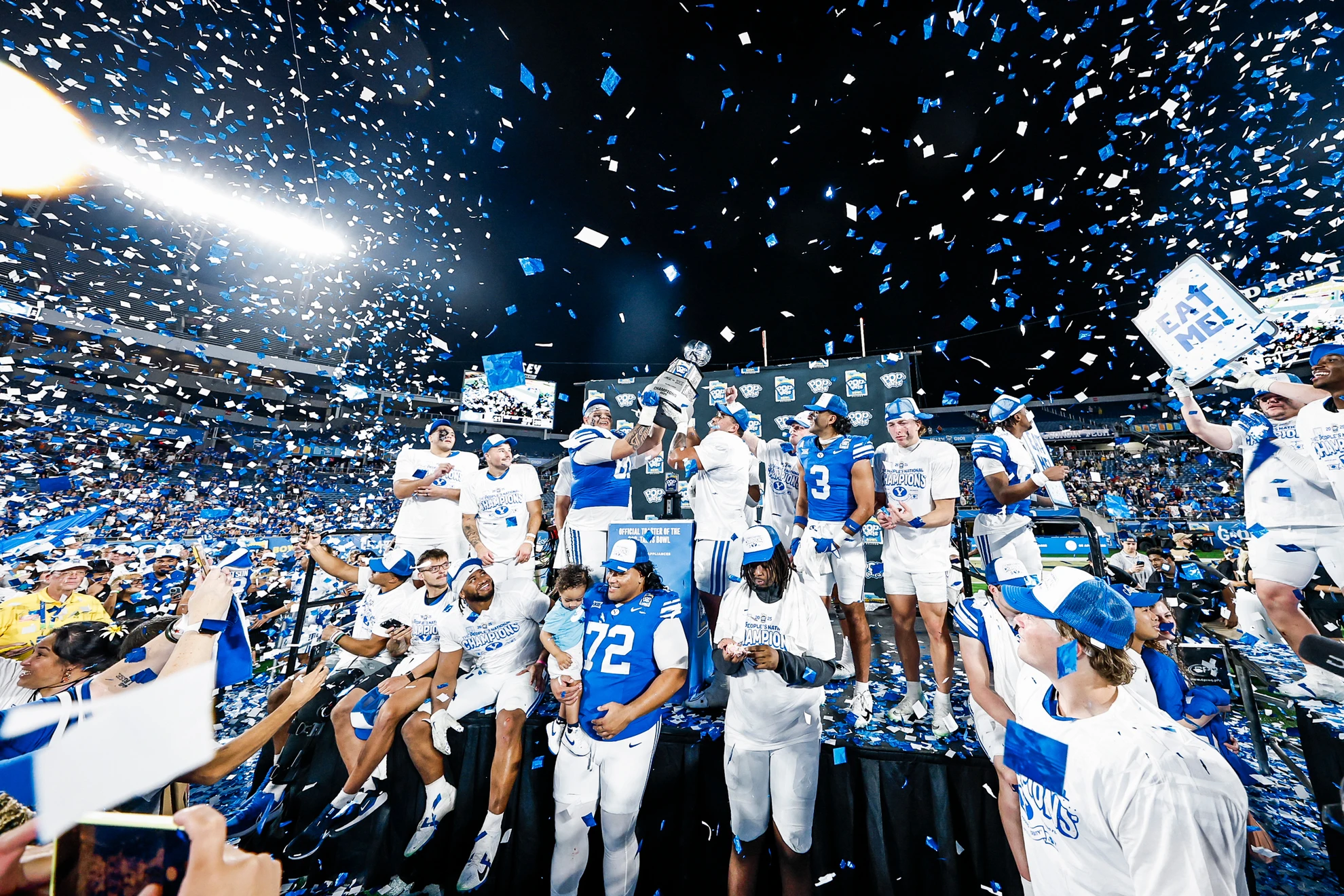
Fourth Quarter
On second-and-nine, Bachmeier found Roberts in a tight window for a gain of 18. Damuni added four yards, and on third down, Roberts caught a 7-yard pass to move the chains. Bachmeier and Ryan connected for the seventh time, this time for 13 yards to pin BYU at the Yellow Jacket six-yard line. After Kingston recorded a four-yard carry, Nawahine took the direct snap and plowed into the end zone. Keeping the offense on the field to go for two, Bachmier rushed it into the end zone to cut the deficit to three.
BYU forced the game’s first three-and-out. Kingston returned the punt 34 yards to set BYU up at its 45.
Bachmeier pitched to Damuni for a gain of five on first down. The freshman running back gained one yard on the next play, but the Cougars were unable to convert on third-and-four, and Vander Haar and the punting unit returned to the field, resulting in the second three-and-out of the game.
An illegal snap penalty pushed Georgia Tech back to its four-yard line. On second-and-14, King hit Rutherford for a gain of 12, and then another illegal snap penalty was enforced on the Yellow Jackets to set up third-and-seven. Haynes got just short of the line of gain before Glasker and Tanner Wall tackled him to force a punt. Kingston returned the punt four yards and set BYU up at its own 30 with 5:44 on the clock.
Following two incomplete passes, Bachmeier found Kingston at the BYU 34, and he advanced to the 43-yard line to grab the first down. Phillips secured a 14-yard pass from Bachmeier, and then Kingston caught a 15-yard pass to cap three consecutive first downs. After an eight-yard pass to Ryan to the Georgia Tech 20, the running back room led the way, kick-started by Nawahine picking up nine yards with a hurdle over a defender. Bachmeier passed to Damuni for a gain of seven, and then the Providence, Utah product powered into the end zone for his first career touchdown. Alongside Ferrin’s extra point, the Cougars took the lead, 25-21 with two minutes left.
Ferrin’s kickoff was returned 13 yards to pin Georgia Tech at its 21. Nusi Taumoepeau and Lutui hurried King and his pass fell incomplete on first down. On the next play, King lost the ball on a low snap but recovered his fumble for a loss of five yards. On third-and-15, another pass fell incomplete, forcing fourth-and-15. On the play, King went deep to Rivers for a gain of 66 at the BYU 18 with 52 seconds on the clock. The defense held the Yellow Jackets to three-straight incomplete passes, setting up fourth down with 14 seconds remaining. King attempted to hit Haynes in the end zone but his pass was intercepted by Johnson to seal the Pop Tarts Bowl victory 25-21.
Sports
Kats take care of Biblical Studies 117-57

The Bearkats (8-4) controlled the temp on both ends of the court, shooting close to 60 percent while limiting the Ambassadors to 31 percent. Sam Houston used its height advantage to dominate the paint, outscoring Biblical Studies 62-12 and outrebounding the Houston area team 66-29.
Isaiah Manning led the Kats with a career-high 27 points to go along with 10 rebounds for his first career double-double. Freshman Jacob Walker also scored a new career high with 24 points, Veljko Illic added 16 points and nine boards, freshman Matt Dann chipped in a career-high 12 points, freshman Jacoby Coleman finished with 11 and Damon Nicholas Jr. had 10.
Sam Houston built a huge first-half lead and never looked back.
The Kats went on a 10-0 run thanks to back-to-back 3s by Walker and Manning, who added a pair of layups to grab a 23-10 advantage. Dann punched in consecutive dunks after a free throw and a two more layups by Nicholas to cap the run at 19-0 to put the game away early as the Ambassadors went more than seven minutes without scoring.
Sam Houston shot a blistering 66 percent from the field in the first half, making 25 of 40 shot attempts. The Bearkats also held Biblical Studies to just 23 percent shooting to build a commanding 59-21 lead at the break.
Conference USA action resumes Jan. 2 when Sam Houston heads to Bowling Green, Kentucky to face WKU at 4 p.m. on ESPN+.
Sports
Texas A&M star Ifenna Cos‑Okpalla signs with League One Volleyball

Dec. 28, 2025, 12:20 p.m. CT
At the end of the season, after some of the adrenaline from the Texas A&M championship run had subsided, head coach Jamie Morrison revealed that a few players on his roster would have the opportunity to compete at the next level. While he didn’t name names, we had a pretty strong idea of which standout athletes he was referring to.
On Sunday morning, it was officially announced that senior middle blocker and 2025 NCAAVB Champion Ifenna Cos-Okpalla signed a professional contract to play with League One Volleyball (LOVB) Salt Lake. She joins senior opposite Logan Lednicky in the league, who recently signed with LOVB Houston. Cos-Okpalla was also drafted by MLV but ultimately chose to pursue her career with LOVB. We knew a move was coming soon after the news broke that she had signed with Valor Sports Agency just days before this announcement.
Cos-Okpalla is one of the foundational members of this Aggie championship team, having been part of the program for all four years and choosing to stay committed when Coach Morrison arrived to take over. She elevated her game each season under his leadership, helping her reach new heights and shatter multiple program records. She will leave Texas A&M as the all-time leader in total blocks (566), the single-season block leader (199), and the program’s hitting percentage leader (.422).
It’s fair to say she will be remembered as an Aggie legend, and she now turns her focus toward new goals with a promising professional volleyball career on the horizon.
Ifenna Cos-Okpalla Career stats:
Kills: 637 / 1.70 per set
Hitting %: .372
Blocks: 565 / 1.6 per set
Aces: 41 / .12 per set
Ifenna Cos-Okpalla Career Accolades:
- 2X All-SEC Team
- 4X SEC Player of the Week
- 10X SEC Defensive Player of the Week
- AVCA All-America First Team
- 2X AVCA All-Southwest Region Team
- NCAA Championship All-Tournament Team
- NCAA Champion
Contact/Follow us @AggiesWire on X and like our page on Facebook to follow ongoing coverage of Texas A&M news, notes, and opinions. Follow Jarrett Johnson on X: @whosnextsports1.
Sports
Deaf volleyball coach speaks volumes (video)

Sherry Bryant was born deaf, but that hasn’t stopped her from becoming a wife, mother and volleyball coach for Copper Sky Multigenerational Center’s youth volleyball league.
Bryant can’t hear and she doesn’t speak, but she uses hand gestures and written notes to communicate with players. During practice, she is often in the action pointing players to proper positions and cheering on successful plays.
Her desire to coach stems from more than her love of the game. She is able to spend time with her daughter on the court and show that deaf people are not limited.
“My daughter plays, and I feel it benefits her and the girls,” Bryant said. “If there are no volunteers, there might be no one to coach. Another reason is to show deaf people can do it.”
From time to time, Bryant’s players are unable to understand their coach’s instructions.
“This is my first (coaching) experience,” Bryant said. “My assistant coach (Nikki Lucchesi) helps me a lot. She speaks to the players.”
For Copper Sky Sports Coordinator David Aviles, picking Bryant to coach was simple.
“When you run a sports program there are times you run low on coaches,” Aviles said. “I reached out to the parents for the girls, and [Bryant] volunteered. She’s done a great job and really enjoys it.”
Bryant’s team won its first game. The players were attentive to her instructions.
“It’s inspirational for the kids to see that she’s out there coaching,” Aviles said. “She takes a hands-on approach and plays with them. It seems to be working well.”
This story appeared in the February issue of InMaricopa News.
Sports
Cos-Okpalla Inks Professional Contract with LOVB Salt Lake – Texas A&M Athletics
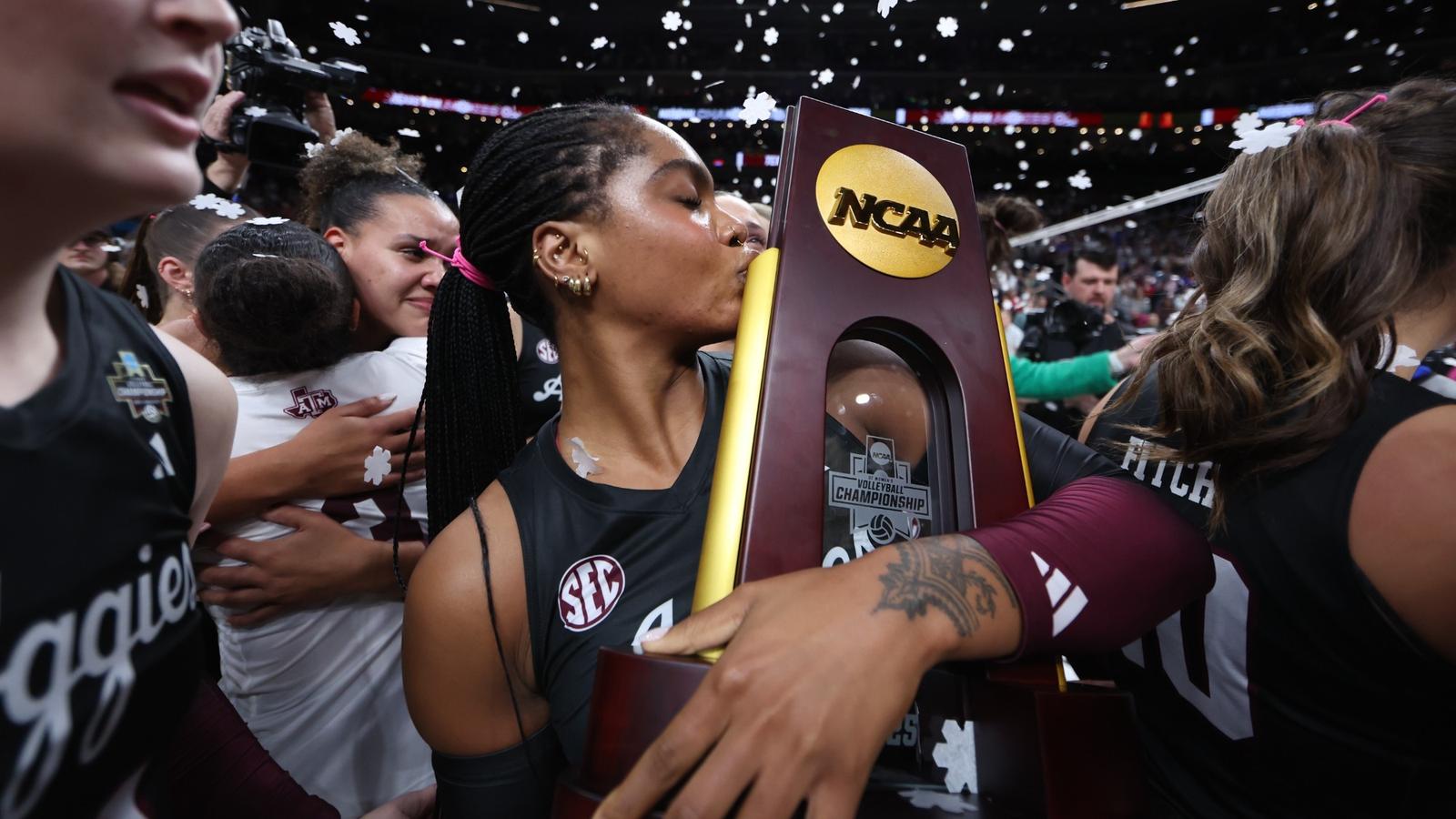
Fresh off leading the Aggies to their first NCAA title, Cos-Okpalla was announced as one of seven collegiate athletes selected for LOVB and will take her talents to Utah. The middle blocker was highly sought after following her senior season, as she garnered First Team All-America honors and led the country in blocks with 199 on the year.
“I couldn’t be happier for Ifenna [Cos-Okpalla] as she starts her pro career,” head coach Jamie Morrison said. “When I took this job one of my goals for the program was to become the best place to develop our athletes into professional and international players. We want to build a clear pathway from college to the professional game, and I know Ifenna is going to thrive at the next level.”
The Flower Mound, Texas, native made history in the final match of her career, setting the program record for career blocks. She entered the contest with 561, one shy of the Jazzmin Babers former record (562), and with her second of the match passed the milestone and added two more to finish her career with 565. Her senior season on its own also made history, as she tallied 199 stuffs which was a single-season record.
Cos-Okpalla’s versatility is what made her stand out, as offensively she recorded 629 kills over her four years while recording back-to-back years with over 200 in 2024 (228) and 2025 (236). Not only did her production rise every year, so did her efficiency which culminated in the program record for hitting percentage in a season this year at .422 percent.
The All-American separates herself from other middle blockers nationwide from the service line, racking up a team-high 42 aces this season which is the most by an Aggie since 2019. Her variety of scoring helped her accumulate 396.5 points on the year.
Leaving a legacy, Cos-Okpalla departs Aggieland a two-time All-American, two-time All-SEC First Team honoree, three-time All-Region selection, an NCAA and SEC All-Tournament Team member and a program record 14-time SEC weekly award winner.
FOLLOW THE AGGIES
Visit 12thMan.com for more information on Texas A&M volleyball. Fans can keep up to date with the A&M volleyball team on Facebook, Instagram and on Twitter/X by following @AggieVolleyball.
Sports
South Carolina Gamecocks Defensive Back Plans to Enter the Transfer Portal
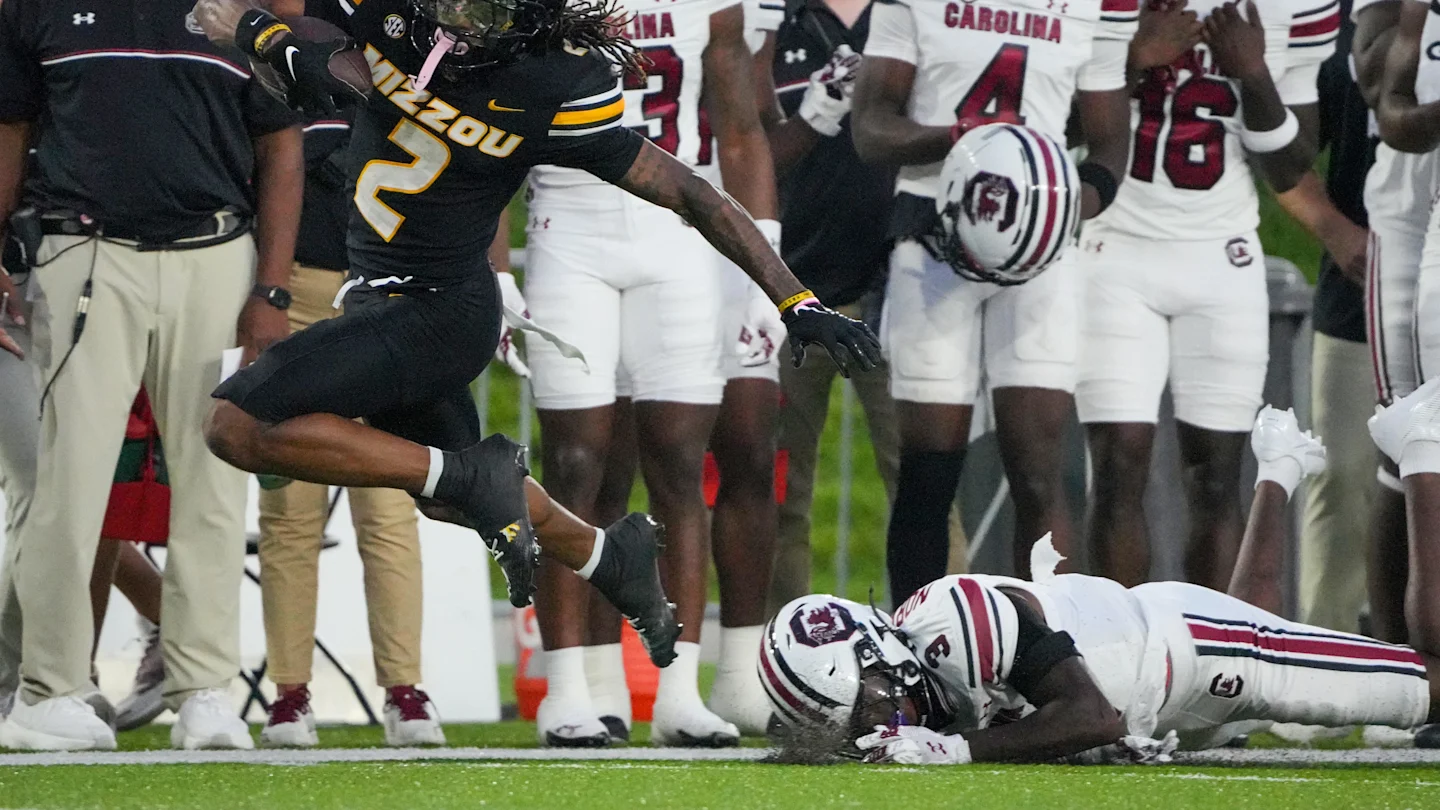
After transferring to South Carolina prior to the 2025 season, defensive back Myles Norwood will enter the transfer portal in hopes of finishing his last year of eligibility elsewhere next fall. Norwood began his career at Iowa State, transferred to Ball State, and then to South Carolina. He will be looking for his fourth home this offseason.
Norwood was a collegiate track star turned defensive back in his college career. His journey began at Iowa Western Community College where he was a track and field participant for the Reivers. Following his freshman year in track he moved on to Iowa State to play for then head coach Matt Campbell (now Penn State). He spent two seasons with the cyclones appearing in just one game against West Virginia in 2022. In 2024, he transferred to New Mexico State in February, but never played for the Aggies before transferring to Ball State just three months later.
At Ball State, Norwood appeared in all 12 games for the Cardinals making seven starts. He was credited with with 38 tackles including 2.0 tackles for loss, one fumble recovery and a team-leading 10 pass breakups. After his breakout season with the Cardinals, Norwood commited to the Gamecocks for the 2025 season. He appeared in 10 games, with two starts, in his time in Columbia as he racked up 19 total tackles this past season.
Updated Transfer Portal Tracker

In addition to Norwood, 11 other Gamecocks have entered the portal so far with the offensive line room taking the biggest hit. That list includes OL Tree Babalade, OL Cason Henry, WR Brian Rowe Jr., QB Air Noland, OL Mac Walters, OL Nick Sharpe, OL Trovon Baugh, DL Zavian Hardy, LB Jaron Willis, LB Taeshawn Alston, and K Peyton Argent.
A few others have already declared their move to the 2026 NFL Draft. Wide receiver Jared Brown was the latest to make his intentions known. He joins defensive tackle Monkell Goodwine, defensive tackle Nick Barrett, and defensive end Bryan Thomas Jr. as those entering their names in the 2026 NFL Draft, with tight end Jordan Dingle expected to be the next name as his eligibility is out.
Join the community:
- Follow Alex Joyce on Twitter: @AlexJoyceSI
- Follow Joey Walraven on Twitter: @thejoeywalraven
You can follow us for future coverage by clicking “Follow” on the top right-hand corner of the page. Also, be sure to follow us on X at @GamecocksDigest and on Facebook!
You Might Also Like:
-

 Motorsports3 weeks ago
Motorsports3 weeks agoSoundGear Named Entitlement Sponsor of Spears CARS Tour Southwest Opener
-

 NIL3 weeks ago
NIL3 weeks agoDeSantis Talks College Football, Calls for Reforms to NIL and Transfer Portal · The Floridian
-

 Sports2 weeks ago
Sports2 weeks ago#11 Volleyball Practices, Then Meets Media Prior to #2 Kentucky Match
-

 Motorsports2 weeks ago
Motorsports2 weeks agoSunoco to sponsor No. 8 Ganassi Honda IndyCar in multi-year deal
-
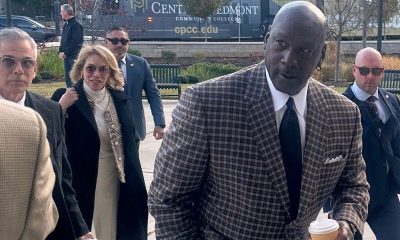
 Motorsports3 weeks ago
Motorsports3 weeks agoNASCAR owes $364.7M to teams in antitrust case
-
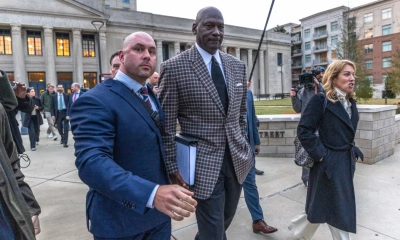
 Motorsports2 weeks ago
Motorsports2 weeks agoNascar legal saga ends as 23XI, Front Row secure settlement
-
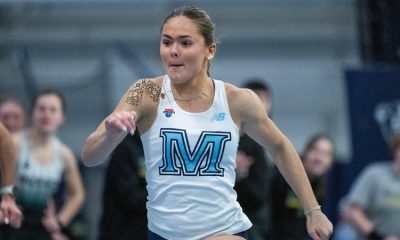
 Sports2 weeks ago
Sports2 weeks agoMaine wraps up Fall Semester with a win in Black Bear Invitational
-

 Motorsports3 weeks ago
Motorsports3 weeks agoNorth Florida Motorsports Park led by Indy 500 Champion and motorsports legend Bobby Rahal Nassau County, FL
-

 Rec Sports2 weeks ago
Rec Sports2 weeks agoWNBA’s Caitlin Clark, Angel Reese and Paige Bueckers in NC, making debut for national team at USA camp at Duke
-
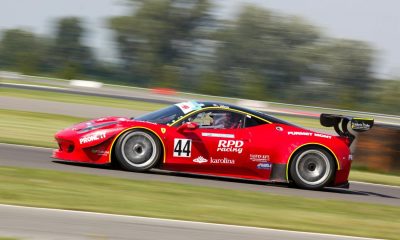
 Motorsports3 weeks ago
Motorsports3 weeks agoAccelerating Inclusion: Breaking Barriers in Motorsport


































